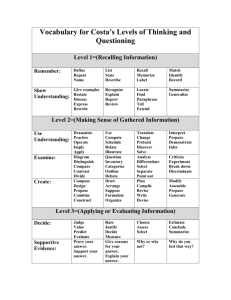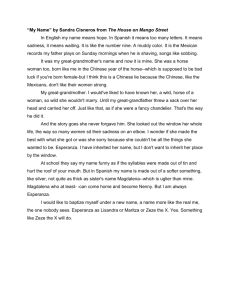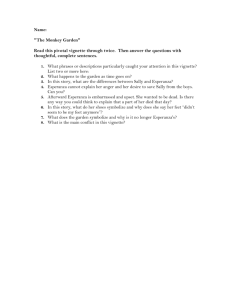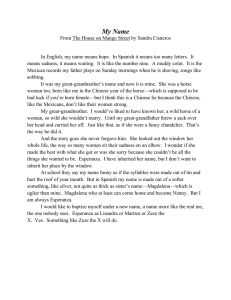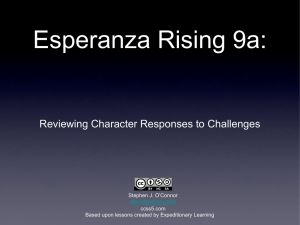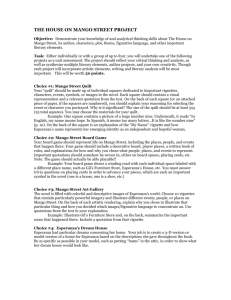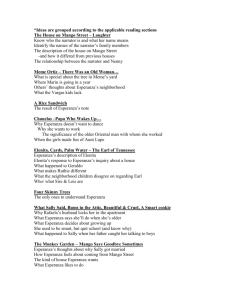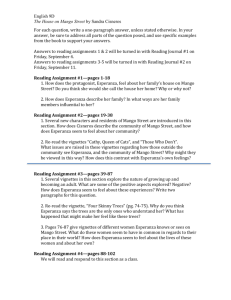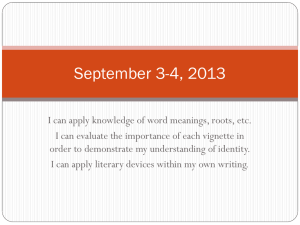STUDENT SAMPLE ESSAY
advertisement
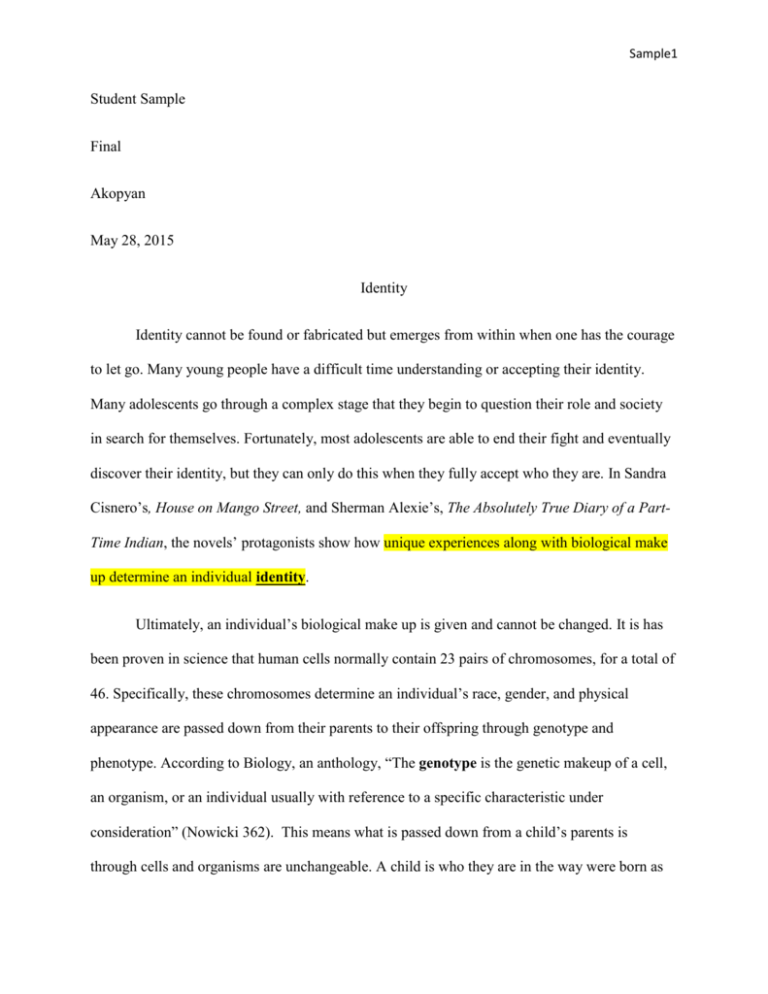
Sample1 Student Sample Final Akopyan May 28, 2015 Identity Identity cannot be found or fabricated but emerges from within when one has the courage to let go. Many young people have a difficult time understanding or accepting their identity. Many adolescents go through a complex stage that they begin to question their role and society in search for themselves. Fortunately, most adolescents are able to end their fight and eventually discover their identity, but they can only do this when they fully accept who they are. In Sandra Cisnero’s, House on Mango Street, and Sherman Alexie’s, The Absolutely True Diary of a PartTime Indian, the novels’ protagonists show how unique experiences along with biological make up determine an individual identity. Ultimately, an individual’s biological make up is given and cannot be changed. It is has been proven in science that human cells normally contain 23 pairs of chromosomes, for a total of 46. Specifically, these chromosomes determine an individual’s race, gender, and physical appearance are passed down from their parents to their offspring through genotype and phenotype. According to Biology, an anthology, “The genotype is the genetic makeup of a cell, an organism, or an individual usually with reference to a specific characteristic under consideration” (Nowicki 362). This means what is passed down from a child’s parents is through cells and organisms are unchangeable. A child is who they are in the way were born as Sample2 biology determines him or her, and their genes and chromosomes cannot be changed. In addition, these genotypes work to form the phenotypes, which create an individual’s physical appearance. Genotypes combined with phenotypes are part of a child’s born identity. Sure, as they grow and mature an individual may dye their hair, put in contacts, or have surgery to alter their appearance. However, these changes are not permanent and do not change the genetic make-up that will then be passed on to their offspring. Psychology Which psychological theory and theorist do you believe? Teach your readers about the topic and this idea- do it well! How does this theory play into identity? Why does it help to shape an individual’s character? Gender expectations are scary in that often they can set boundaries. Esperanza, the protagonist in Sandra Cisnero’s, House on Mango Street, is a young Latin female who tries to break the belief that women have to be homemakers as it is set by the Latin culture and gender expectations that come with the culture. In the collection of vignettes, Esperanza explores the role of women and recognizes that women in her community are depressed and caged. A prime example of this is her grandmother who used to be a “wild horse of a woman,” but upon marriage “she looked out the window her whole life, the way so many women sit their sadness on an elbow” (Cisneros 11). Esperanza’s grandmother had the opportunity to become something more, but instead her gender expectations brought on by her culture forced her to feel trapped and imprisoned within her own home, so she sat in sadness most of her days. Esperanza’s grandmother was young, wild, and free. Sadly, her culture and gender which she was born with determined her future and that was to be a depressed housewife. This experience combined with Sample3 those of the rest of the women helped to shape Esperanza into the strong, independent, confident woman that she grew to be. Esperanza fought her roots, and her gender expectations; in fact she disliked being a female and having to follow the set expectations so much so that she begins to break these traditions: “I have begun her own quiet war. Simple. Sure. I am one who leaves the table like a man, without putting back the chair or picking up the plate (89). Esperanza begins to fight back in order to achieve more, to work past the boundaries that are set for her simply because she’s a Latina female. The quiet war she begins is to break the stereotypes that are bestowed upon these young Latin females. Additionally, it is to change the way future generations see women within her community and culture. Though Esperanza fought being a female, being Latina, and hated being a member of her community it is not until she accepts these factors due to her experiences that she develops a strong identity. Her nature combined with her nurture work together to shape the strong, independent women that she is. Next character…. prove your opinion using another character make sure all aspects of your opinion are addressed You how did you find your identity? Prove your opinion with your own evidence. Use computer science IF YOU TOOK IT. If not its okay! Conclusion….
